
Photo taken on Nov. 25, 2018 shows iceberg seen from China's research icebreaker Xuelong in a floating ice area in Southern Ocean. China's research icebreaker Xuelong has entered a floating ice area in the Southern Ocean to avoid a cyclone. It is scheduled to reach the Zhongshan Station in Antarctica on Nov. 30. Also known as the Snow Dragon, the icebreaker carrying a research team set sail from Shanghai on Nov. 2, beginning the country's 35th Antarctic expedition which will last 162 days and cover 37,000 nautical miles (68,500 km). (Xinhua/Liu Shiping)
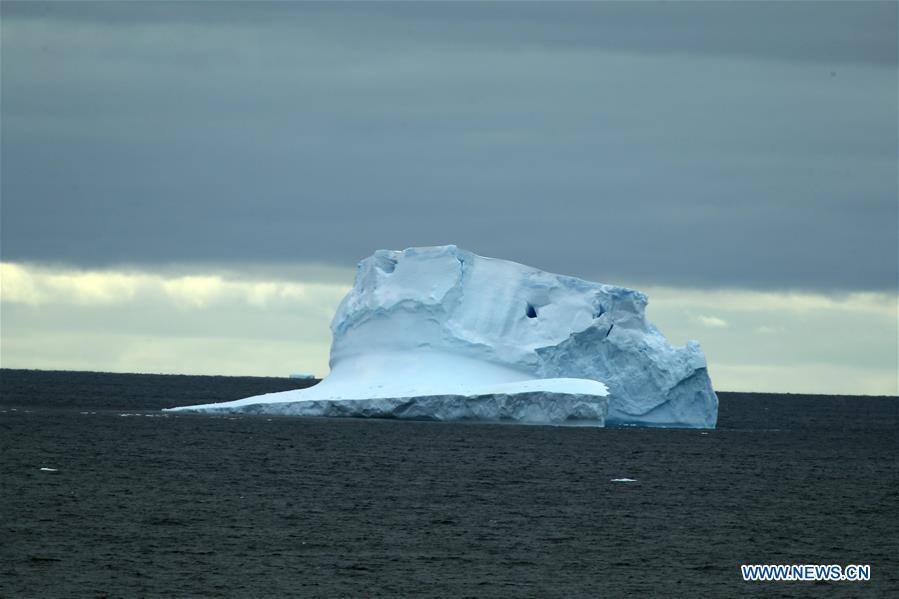
Photo taken on Nov. 27, 2018 shows iceberg seen from China's research icebreaker Xuelong in a floating ice area in Southern Ocean. China's research icebreaker Xuelong has entered a floating ice area in the Southern Ocean to avoid a cyclone. It is scheduled to reach the Zhongshan Station in Antarctica on Nov. 30. Also known as the Snow Dragon, the icebreaker carrying a research team set sail from Shanghai on Nov. 2, beginning the country's 35th Antarctic expedition which will last 162 days and cover 37,000 nautical miles (68,500 km). (Xinhua/Liu Shiping)
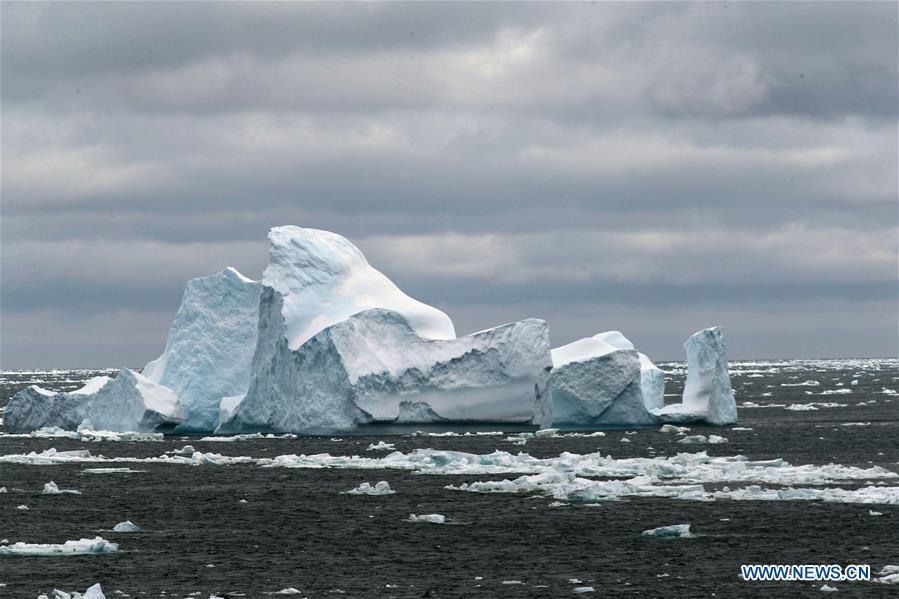
Photo taken on Nov. 26, 2018 shows iceberg seen from China's research icebreaker Xuelong in a floating ice area in Southern Ocean. China's research icebreaker Xuelong has entered a floating ice area in the Southern Ocean to avoid a cyclone. It is scheduled to reach the Zhongshan Station in Antarctica on Nov. 30. Also known as the Snow Dragon, the icebreaker carrying a research team set sail from Shanghai on Nov. 2, beginning the country's 35th Antarctic expedition which will last 162 days and cover 37,000 nautical miles (68,500 km). (Xinhua/Liu Shiping)

Photo taken on Nov. 27, 2018 shows iceberg seen from China's research icebreaker Xuelong in a floating ice area in Southern Ocean. China's research icebreaker Xuelong has entered a floating ice area in the Southern Ocean to avoid a cyclone. It is scheduled to reach the Zhongshan Station in Antarctica on Nov. 30. Also known as the Snow Dragon, the icebreaker carrying a research team set sail from Shanghai on Nov. 2, beginning the country's 35th Antarctic expedition which will last 162 days and cover 37,000 nautical miles (68,500 km). (Xinhua/Liu Shiping)
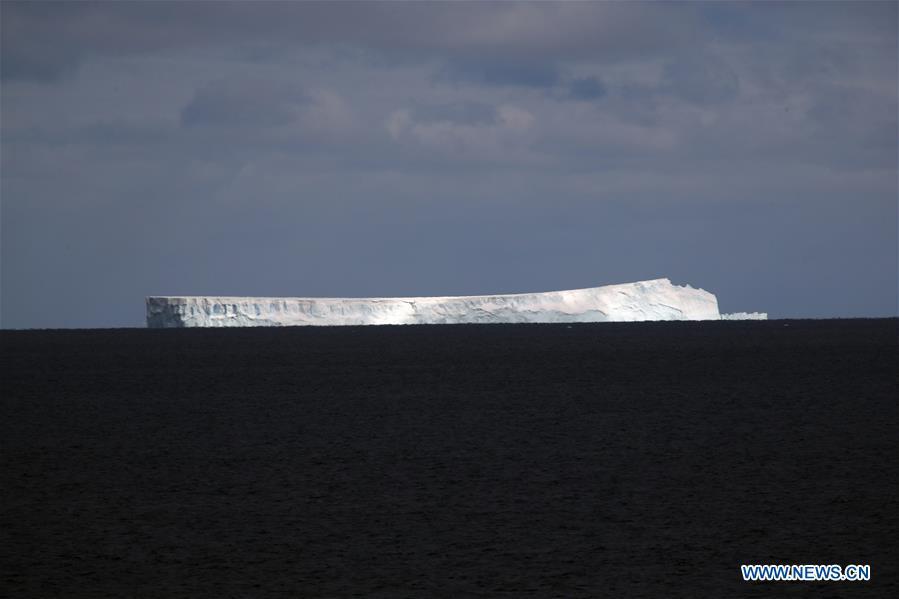
Photo taken on Nov. 27, 2018 shows iceberg seen from China's research icebreaker Xuelong in a floating ice area in Southern Ocean. China's research icebreaker Xuelong has entered a floating ice area in the Southern Ocean to avoid a cyclone. It is scheduled to reach the Zhongshan Station in Antarctica on Nov. 30. Also known as the Snow Dragon, the icebreaker carrying a research team set sail from Shanghai on Nov. 2, beginning the country's 35th Antarctic expedition which will last 162 days and cover 37,000 nautical miles (68,500 km). (Xinhua/Liu Shiping)
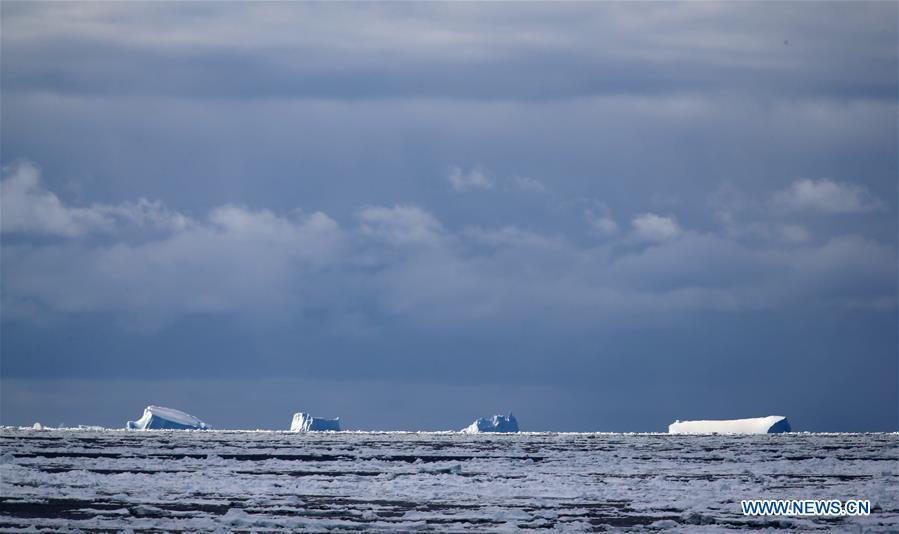
Photo taken on Nov. 26, 2018 shows iceberg seen from China's research icebreaker Xuelong in a floating ice area in Southern Ocean. China's research icebreaker Xuelong has entered a floating ice area in the Southern Ocean to avoid a cyclone. It is scheduled to reach the Zhongshan Station in Antarctica on Nov. 30. Also known as the Snow Dragon, the icebreaker carrying a research team set sail from Shanghai on Nov. 2, beginning the country's 35th Antarctic expedition which will last 162 days and cover 37,000 nautical miles (68,500 km). (Xinhua/Liu Shiping)
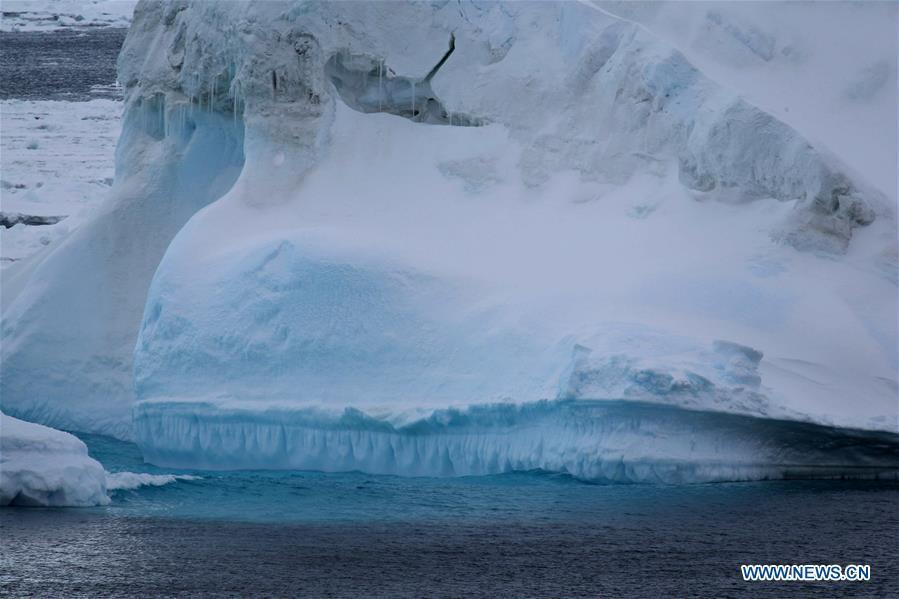
Photo taken on Nov. 26, 2018 shows iceberg seen from China's research icebreaker Xuelong in a floating ice area in Southern Ocean. China's research icebreaker Xuelong has entered a floating ice area in the Southern Ocean to avoid a cyclone. It is scheduled to reach the Zhongshan Station in Antarctica on Nov. 30. Also known as the Snow Dragon, the icebreaker carrying a research team set sail from Shanghai on Nov. 2, beginning the country's 35th Antarctic expedition which will last 162 days and cover 37,000 nautical miles (68,500 km). (Xinhua/Liu Shiping)























